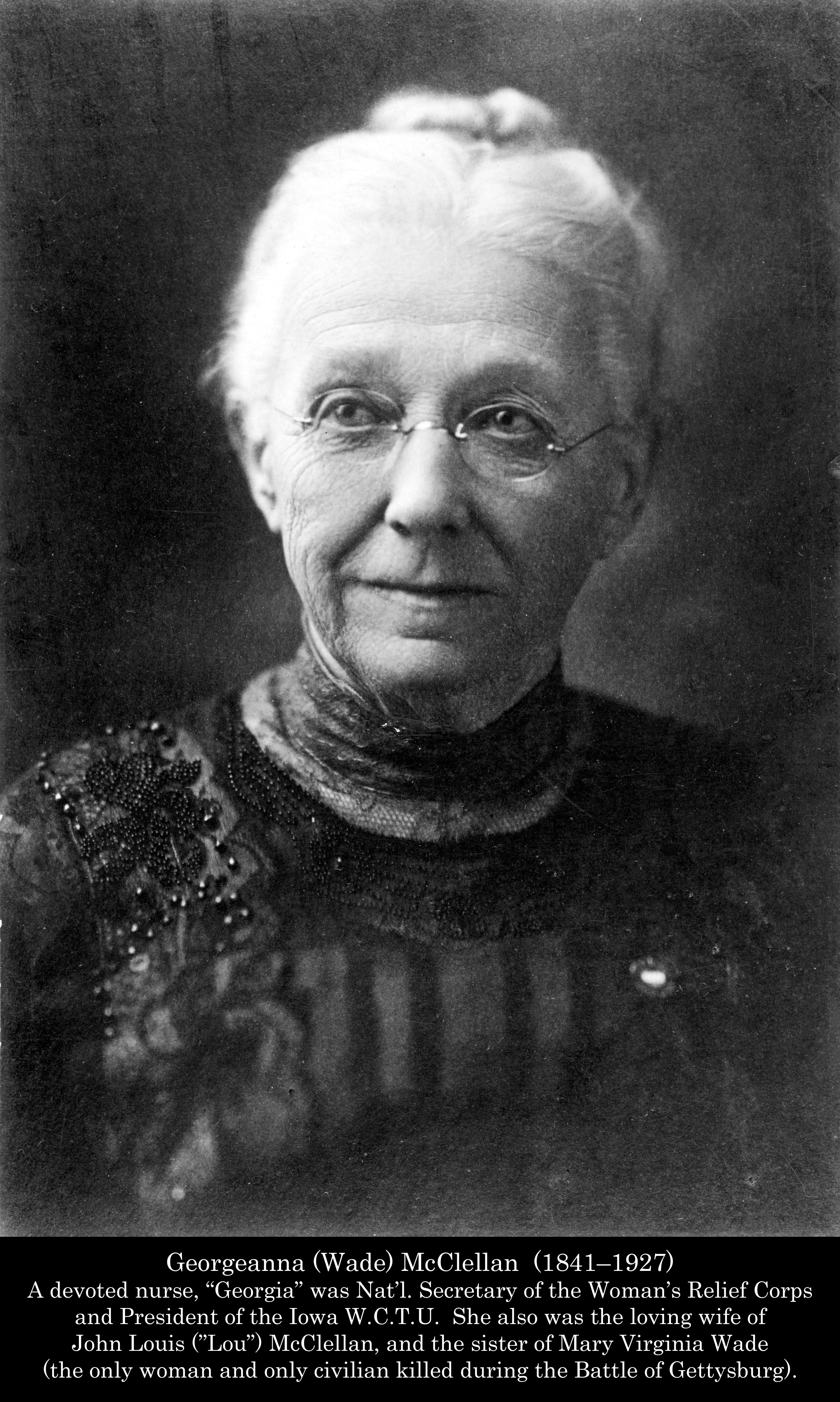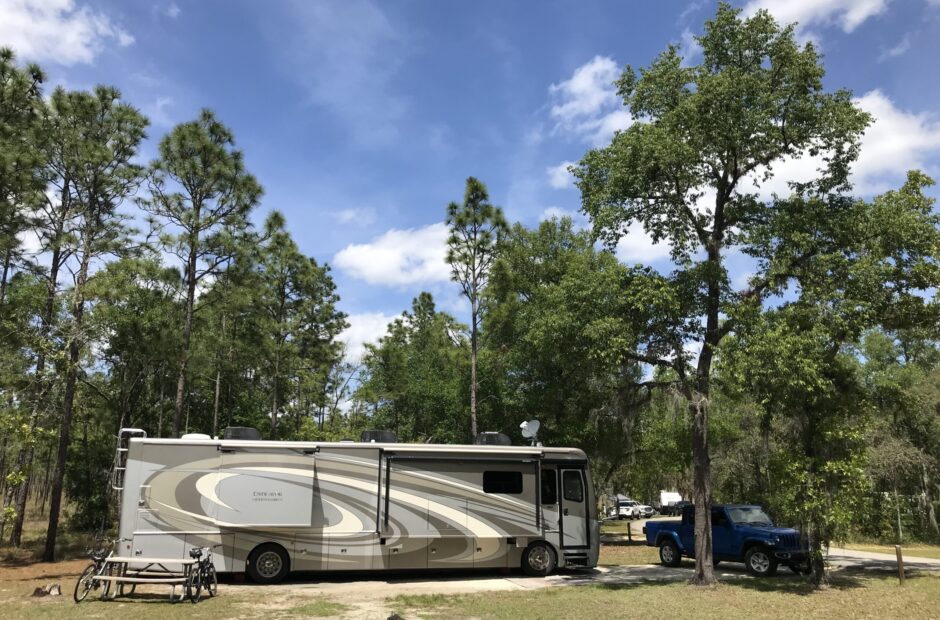It’s hard to imagine, but true. In a town of 2,400 that was suddenly inundated with about 165,000 men (plus all their equipment and horses); where war raged all around and in and through their town for three days; there was only one civilian casualty. And that one was a 20-year-old visiting her sister and in the midst of baking bread (or biscuits, depending on who’s story you read) for the troops. Other civilians perished later upon finding artillery shells that exploded in their hands or loaded guns that accidentally discharged, but there was only one who died during a battle that took the lives of over 7,000 soldiers.
This is the story of Jennie Wade, as told by thevintagenews.com, history.com, and gettysburgbattlefieldtours.com with a few comments and editing by me.

May 21, 1843 – July 3, 1863
August 4, 1841 – July 12, 1863
Died in Wincester, Virginia
Unconfirmed fiance/love interest of Jennie

Born on May 21, 1843, in the town of Gettysburg, Pennsylvania, Mary Virginia Wade was called “Gin” or “Ginnie” as a child. But due to an apparent newspaper inaccuracy, she has become known to history as “Jennie.”
Like many women during the war, the twenty-year-old and her mother, Mrs. Mary Wade, were left fending for themselves, working as seamstresses to earn a living. For additional income they also took on the role of caregivers during the week to a six-year-old disabled boy named Isaac Brinkerhoff, while his own mother worked away from home.
Jennie’s father, however, wasn’t off fighting the Confederates. A former tailor, James had been charged in 1839 with committing fornication by force and fathering a child out of wedlock. Though found not guilty by the Adams County Court, the child in question was raised by the Wade household as Jennie’s older brother. On other occasions, James Wade was accused of arson, charged with assault three times and found guilty twice and sent to prison for embezzlement. In 1852, Jennie’s mother, also named Mary, petitioned the court to have her husband found insane after which he was sent to the Adams County Alms House where he remained until his death in 1872.
Jennie was said to be betrothed to Corporal Johnston “Jack” Skelly, a childhood friend turned romantic interest. Jack was wounded and captured in Winchester, a fact that Jennie would never learn. Corporal Skelly never learned of her death either. He died in captivity just one week later, on July 12th, before the news could have reached him.
A few days before the Battle of Gettysburg began, as a vanguard of Confederate troops rattled through Gettysburg helping themselves to supplies, Jennie’s sister, Georgiana Wade McClellan, had given birth to her first child, Lewis Kenneth. Mary (the mom) went to look after Georgiana and the newborn, leaving Isaac in the care of Jennie. The McClellan house was five blocks away, on Baltimore Street. The Wade and McClellen women were frightened (as were all the townsfolk), but thought that the armies had passed them by.
When the Union Army rolled into town on the evening of June 30th, Jennie became concerned for the safety of her ward and took him to join her mother at the McClellan house. Fighting broke out just a few hundred yards away on July 1, 1863, in what would become the edge of the main battlefield, leaving Jennie and her family caught in the crossfire.
The confrontation continued the following day (July 2nd), with stray bullets and shells shattering windows and damaging the home’s brick exterior. Many of the town’s residents hid in the darkness of their cellars. Jennie, undaunted, ventured outside to offer food and water to the famished Union soldiers.
In the early morning of July 3rd, Jennie went out to gather firewood. Upon returning to the house, Wade ate breakfast and apparently read from the Book of Psalms. That same morning, Confederate soldiers began firing on the North side of the house, which was hit by over 150 bullets. In addition, an artillery shell crashed through the roof, knocked a hole in a wall and came to rest in the eaves, where it remained for the next 15 years. Luckily for the family, it never exploded. A bullet then flew through a window and lodged in the bedpost next to where Georgia was lying with her son, as Jennie began to knead a fresh batch of dough so they could continue to provide for the soldiers. Around 8:30 a.m., she had nearly finished kneading the dough when another bullet, having penetrated two doors, went into her back and through her heart, killing her instantly.
Her sister Georgia let out a horrified scream that brought Union soldiers racing into the house. They led the family members to safety in the cellar, along with Jennie’s body that they wrapped in a quilt. Later they would give her a temporary burial her in her sister’s backyard. Six months later, Jennie’s remains were moved to the cemetery of the German Reformed Church.
In November 1865, Jennie’s remains would find a permanent and dignified resting place at Gettysburg Evergreen Cemetery near her fiancé Jack. A monument, reading Killed July 3, 1863 While Making Bread For The Union Soldiers, marks her grave, as does an American flag flown day and night — a female patriotic honor she shares only with Betsy Ross.

I think it costs $15/person to walk inside.
We’ve seen inside lots of homes before, and all the information was available on-line. : )

Just wanted to remind you. : )
Jennie’s work the morning of July 3rd, was not in vain—on July 4th, the very next day, her mother used the dough to bake 15 loaves of bread for the hungry Union soldiers.
She was praised, deservedly so, as a hero. A Gettysburg newspaper described her as “a young lady of good character and much respected”; A Harrisburg newspaper described her as “a lady of most excellent qualities of head and heart.” Not all of the press was positive. Oddly enough, some accused Jennie of being sympathetic to the Confederate cause.
